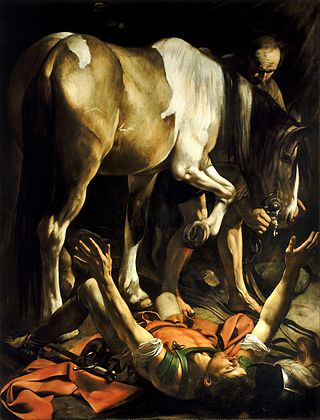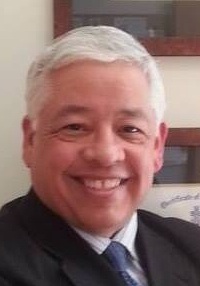Evangelicalism, also called evangelical Christianity or evangelical Protestantism, is a worldwide interdenominational movement within Protestant Christianity that emphasises the centrality of being "born again", in which an individual experiences personal conversion; the authority of the Bible as God's revelation to humanity; and spreading the Christian message. The word evangelical comes from the Greek (euangelion) word for "good news".
Theology is the systematic study of the nature of the divine, or more broadly of religious belief. It is taught as an academic discipline, typically in universities and seminaries. It occupies itself with the unique content of analyzing the supernatural, but also deals with religious epistemology, asks and seeks to answer the question of revelation. Revelation pertains to the acceptance of God, gods, or deities, as not only transcendent or above the natural world, but also willing and able to interact with the natural world and to reveal themselves to humankind.
Christian fundamentalism, also known as fundamental Christianity or fundamentalist Christianity, is a religious movement emphasizing biblical literalism. In its modern form, it began in the late 19th and early 20th centuries among British and American Protestants as a reaction to theological liberalism and cultural modernism. Fundamentalists argued that 19th-century modernist theologians had misunderstood or rejected certain doctrines, especially biblical inerrancy, which they considered the fundamentals of the Christian faith.

Comparative religion is the branch of the study of religions with the systematic comparison of the doctrines and practices, themes and impacts of the world's religions. In general the comparative study of religion yields a deeper understanding of the fundamental philosophical concerns of religion such as ethics, metaphysics and the nature and forms of salvation. It also considers and compares the origins and similarities shared between the various religions of the world. Studying such material facilitates a broadened and more sophisticated understanding of human beliefs and practices regarding the sacred, numinous, spiritual and divine.
Christianity and other religions documents Christianity's relationship with other world religions, and the differences and similarities.
The religious perspectives on Jesus vary among world religions. Jesus' teachings and the retelling of his life story have significantly influenced the course of human history, and have directly or indirectly affected the lives of billions of people, including non-Christians. He is considered by many to be one of the most influential persons to have ever lived, finding a significant place in numerous cultural contexts.
Criticism of Christianity has a long history which stretches back to the initial formation of the religion in the Roman Empire. Critics have challenged Christian beliefs and teachings as well as Christian actions, from the Crusades to modern terrorism. The arguments against Christianity include the suppositions that it is a faith of violence, corruption, superstition, polytheism, homophobia, bigotry, pontification, abuses of women's rights and sectarianism.

Conversion to Christianity is the religious conversion of a previously non-Christian person that brings about changes in what sociologists refer to as the convert's "root reality" including their social behaviors, thinking and ethics. The sociology of religion indicates religious conversion was an important factor in the emergence of civilization and the making of the modern world. Conversion is the most studied aspect of religion by psychologists of religion, but there is still very little actual data available. Neurological studies have determined that conversion is not the result of pathology.
Monotheism—the belief that there is only one deity—is the focus of the Abrahamic religions, which like-mindedly conceive God as the all-powerful and all-knowing deity from whom Abraham received a divine revelation, per these religions' traditions. The most prominent Abrahamic religions are Judaism, Christianity, and Islam. They, alongside Samaritanism, Druzism, the Baháʼí Faith, and Rastafarianism, all share a common core foundation in the form of worshipping Abraham's God. Likewise, the Abrahamic religions share similar features distinguishing them from other categories of religions:

Edwin David Aponte is a Puerto Rican-American cultural historian, religious studies scholar, and contributor to the development of Christianity among Hispanic and Latino/a Americans. His research focuses on the interplay between religion and culture, especially Hispanic/Latino(a) religions, African-American religions, North American religious history, and congregational studies. He is one of a small number of U.S. Hispanic historians of Christianity.
Postsecularism refers to a range of theories regarding the persistence or resurgence of religious beliefs or practices in the present. The "post-" may refer to after the end of secularism or after the beginning of secularism.
Michael Beresford Foster (1903–1959) was a tutor in philosophy of Oxford University's Christ Church. For a period up until his death he was the chairman of the British Student Christian Movement. He was one of A. J. Ayer's tutors at Oxford, but their relationship is remembered more as a source of strained feelings than of scholarly fellowship. His disparate works on political science and various doctrines of Christianity have influenced philosophers such as George Grant, who had, when writing his doctoral thesis, in fact visited with Foster in England.

The pre-existence of Christ asserts the existence of Christ prior to his incarnation as Jesus. One of the relevant Bible passages is John 1:1–18 where, in the Trinitarian interpretation, Christ is identified with a pre-existent divine hypostasis called the Logos. There are nontrinitarian views that question the aspect of personal pre-existence, the aspect of divinity, or both.
Amos Yong is a Malaysian-American Pentecostal theologian and Professor of Theology and Mission at Fuller Theological Seminary. He has been Dean of School of Theology and School of Intercultural Studies at Fuller Seminary, since July 1, 2019.
Allan Anderson is a British theologian and the Professor of Mission and Pentecostal Studies at the University of Birmingham. He is frequently cited as one of the foremost scholars on Global Pentecostalism.

Thomas Albert (Tal) Howard is a Professor of History and the Humanities at Valparaiso University, Indiana. He formerly directed the Center for Faith and Inquiry and was Professor of History at Gordon College in Wenham, Massachusetts. He completed his MA (1992) and Ph.D. (1996) at the University of Virginia, concentrating in modern European intellectual and religious history. He is founding director of Gordon College's honors program, the Jerusalem and Athens Forum, a one-year, great-books course of study in the history of Christian thought and literature. He served as a principal grant writer and project director of a multimillion-dollar project funded by the Lilly Endowment, entitled "Critical Loyalty: Christian Vocation at Gordon College."
World Christianity or global Christianity has been defined both as a term that attempts to convey the global nature of the Christian religion and an academic field of study that encompasses analysis of the histories, practices, and discourses of Christianity as a world religion and its various forms as they are found on the six continents. However, the term often focuses on "non-Western Christianity" which "comprises instances of Christian faith in 'the global South', in Asia, Africa, and Latin America." It also includes Indigenous or diasporic forms of Christianity in the Caribbean, South America, Western Europe, and North America.
The believers' Church is a theological doctrine of Evangelical Christianity that teaches that one becomes a member of the Church by new birth and profession of faith. Adherence to this doctrine is a common feature of defining an Evangelical Christian church.
Charismatic Christianity is a form of Christianity that emphasizes the work of the Holy Spirit and spiritual gifts as an everyday part of a believer's life. It has a global presence in the Christian community. Practitioners are often called Charismatic Christians or Renewalists. Although there is considerable overlap, Charismatic Christianity is often categorized into three separate groups: Pentecostalism, the Charismatic movement, and the Neo-charismatic movement.
He Guanghu is a Chinese scholar of philosophy of religion and Christian theology. He is considered one of the leading "cultural Christians" in China, intellectuals who see Christian culture as a key to rebuilding Chinese civilization.





